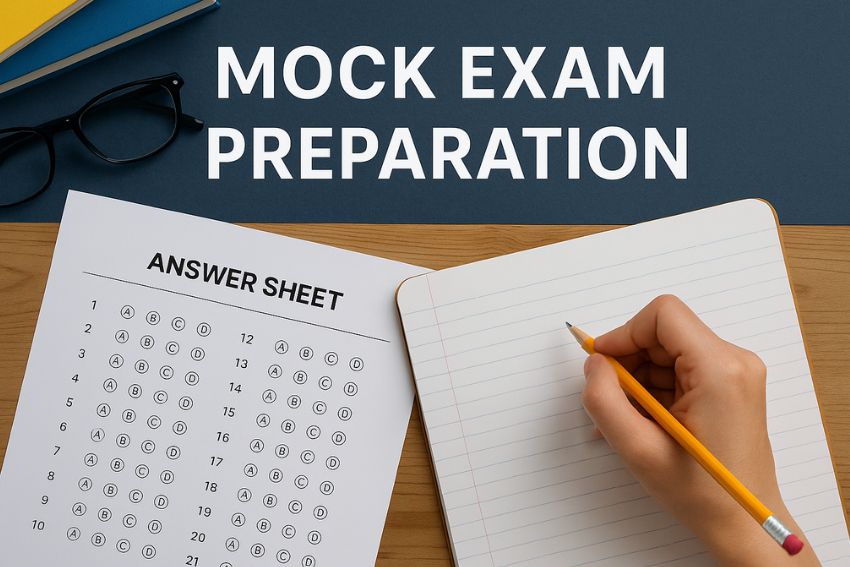Level 5 Qualification: Everything You Need to Know
A Level 5 qualification is an essential part of the UK education system. It sits between higher education and further education, and it can play a big role in shaping your career. Level 5 qualifications are considered higher than A-Levels but do not always require a full degree. They offer practical skills and knowledge needed for specific careers.
Understanding UK education levels can help you see where Level 5 fits in. It’s the level where students begin to specialise in their chosen fields. For students and parents, knowing the level of education meaning helps clarify the pathway from secondary education to employment or further study.
Level 5 qualifications are valuable for students who want to jump into work or continue learning. They open many doors and offer flexible options, whether it’s for further education or immediate.

What is a Level 5 Qualification? An Overview
In simple terms, it’s a qualification that sits between higher education and full university degrees. It’s more advanced than A-Levels but not quite at degree level.
Level 5 qualifications in the UK offer specialised knowledge and skills for career advancement. They are ideal for those looking for practical learning and quick progression.
Common types include Foundation Degrees, Higher National Diplomas (HNDs), and Diplomas of Higher Education (DipHE). Each option focuses on building industry-relevant skills.
Another option is the Level 5 NVQ (National Vocational Qualification), which focuses on hands-on, work-based learning. It helps learners gain real-world job skills.
A Level 5 qualification differs from a full undergraduate degree. Degrees are more academic and take about three years to complete.
In contrast, Level 5 qualifications are more vocational and take less time to finish. They’re a great option for those wanting to enter a career quickly.
The Key Components of a Level 5 Qualification
Level 5 teaching qualification is designed to give students both in-depth knowledge and practical skills in a specific field. It’s more than just theoretical learning; it’s about applying that knowledge in real-world situations. Whether it’s through a Foundation Degree, HND, or Level 5 NVQ, these qualifications prepare you for practical challenges in your chosen career.
For example, an HND in Engineering equips you with technical knowledge and hands-on experience for engineering roles. It blends theory with practical learning.
A Level 5 NVQ in Management builds leadership skills for managing teams and projects. This is achieved through work-based learning and real-world experience.
In summary, a Level 5 qualification provides the skills and knowledge needed for specific careers. It’s ideal for those wanting to enter the workforce quickly or advance in their current role.
It’s a stepping stone between academic study and practical, career-ready skills.

Types of Level 5 Qualifications: Which One Suits You?
When exploring Level 5 qualification types, it’s important to understand the different types available and how they can help shape your future. Here are the main options:
Foundation Degree
A Level 5 diploma combines academic learning with practical experience. It often leads to careers in fields like health, education, or business. After completing this qualification, students can choose to enter the workforce or continue to a full undergraduate degree to further their studies.
Higher National Diploma (HND)
The HND is a Level 5 qualification that focuses on career readiness. It’s particularly useful in fields like business, engineering, and computing. Students can apply the knowledge and skills gained directly in their careers, or use the HND as a stepping stone to a university degree. The qualification is designed to meet the needs of employers, with a strong emphasis on practical, hands-on learning.
Diploma of Higher Education (DipHE)
A DipHE is another Level 5 qualification. It’s similar to a Foundation Degree but often offers a more academic route. It’s a good option for students who want to study specific subjects in greater depth but aren’t ready for a full degree. A DipHE can be used to progress into a full degree program or help students find work in fields like healthcare or social services.
Level 5 NVQ (National Vocational Qualification)
Designed for individuals pursuing professional roles, such as in healthcare, management, or construction, the Level 5 NVQ is all about practical skills and workplace competence.
These qualifications focus on real-world skills, making them ideal for students ready to start their careers or advance in their current jobs.
Level 5 Qualifications
| Level 5 Qualification | Description |
| Diploma of Higher Education (DipHE) | A university-level qualification, often equivalent to the first two years of a bachelor's degree. |
| Foundation Degree | A qualification combining academic study with workplace learning, typically equivalent to the first two years of a bachelor's degree. |
| Higher National Diploma (HND) | A work-related qualification focusing on practical skills, often used to progress to a bachelor's degree. |
| Level 5 Award | A short course qualification focused on a specific area of study or skill. |
| Level 5 Certificate | A qualification covering a broader area than an Award but shorter than a Diploma. |
| Level 5 Diploma | A comprehensive qualification that demonstrates a high level of knowledge and skills in a specific subject. |
| Level 5 NVQ | A National Vocational Qualification (NVQ) at Level 5, demonstrating advanced competence in a specific job role. |
Understanding the UK Qualification Levels: Where Does Level 5 Fit?
A Level 5 qualification in the UK is not quite the same as a full degree, although it provides significant learning and career opportunities. Let’s explore the differences.
A Level 5 qualification sits between A-levels and a full degree in the UK. It provides strong knowledge and practical skills, but isn’t as in-depth as a full degree. Examples include Foundation Degrees and Higher National Diplomas (HNDs), which prepare students for specific careers. Unlike a degree, a Level 5 qualification focuses more on practical learning than academic theory and research.
So, what is a Level 5 NVQ equivalent to? It’s typically considered equivalent to the second year of a full undergraduate degree. While it doesn’t give you a full degree, it’s a great stepping stone for those who want to start working sooner or continue their studies.
A Level 5 teaching qualification offers more practical, hands-on learning than a degree. It’s great for those who want to start their career early. You can also use it to move on to a full degree later if needed.
While Level 5 qualifications are not the same as a full degree, they still offer many opportunities and can be just as valuable in the job market, especially if you’re looking to build a career in specific industries like business, healthcare, or engineering.
What Are the Benefits of a Level 5 Qualification?
So, what is a Level 5 qualification really about? It offers a range of valuable benefits, particularly when it comes to career advancement and employability.
First and foremost, a Level 5 qualification UK opens up numerous career opportunities. By equipping students with practical skills and specialised knowledge, it gives them a competitive edge in the job market. Whether you’re aiming for a management role or a technical position, this qualification makes you stand out to potential employers.
Additionally, a Level 5 qualification can significantly increase employability. Many employers look for candidates with qualifications that show practical expertise and a higher level of commitment. For example, completing a Level 5 diploma in business or healthcare demonstrates that you have the knowledge and skills to succeed in these demanding fields.
Another key advantage is the potential for higher earning. With a Level 5 qualification, you’re often qualified for better-paying roles compared to those with only GCSEs or A-Levels. Whether you’re pursuing a Level 5 NVQ in management or a Foundation Degree in engineering, these qualifications can help you take the next step in your career and increase your income potential.
Lastly, by specialising in specific fields, a Level 5 qualification helps candidates stand out in areas like healthcare, engineering, or business. It’s a great way to dive deep into an area you’re passionate about and make yourself more competitive for jobs.

How to Meet the Requirements for a Level 5 Qualification
If you’re considering pursuing a Level 5 Diploma, you might be wondering what qualifications are needed to get started. In the UK, the typical entry requirements include a combination of GCSEs, A-Levels, or equivalent qualifications such as Level 3 vocational courses. These build upon earlier stages of learning, starting from Level 1 qualifications completed during secondary school. Together, these stages form a clear progression route that prepares students for success in higher-level study, whether you’re aiming for a career-focused route or further academic progression.
For example, most students who want to pursue a Level 5 qualification in the UK will need to have completed their GCSEs, with at least a grade 4 in subjects like Maths and English. If you’re aiming for a Level 5 diploma, you may also need to have A-Levels or an equivalent qualification like a BTEC, especially for more academic or specialised courses.
Qualification levels in the UK are structured in a way that builds on previous stages of education. So, if you’re coming from a vocational background or have work experience, some Level 5 qualifications, like Level 5 NVQs, may accept alternative qualifications or relevant industry experience in place of A-Levels or GCSEs.
In summary, the number of GCSEs you need depends on the specific course you’re interested in. However, having a strong foundation of GCSEs and, in many cases, A-Levels, will set you up well to pursue a Level 5 qualification in the UK.
Conclusion
As discussed above, level 5 qualifications are an important step in the UK education levels system, offering students the opportunity to gain specialised knowledge and practical skills that are highly valued by employers. Whether it’s a Level 5 diploma, an HND, or a Level 5 NVQ, these qualifications can significantly enhance your career prospects.
By exploring the different types of Level 5 qualifications that best align with your interests and career goals, students can unlock a variety of pathways for further education or enter specific fields such as business, healthcare, or engineering. Completing a Level 5 qualification in the UK not only provides valuable skills but also increases employability and earning potential, giving students a competitive edge in the job market.
For students looking to improve their understanding or gain extra support, online tutors can be an excellent resource. With their help, you can get personalised guidance and reinforce your learning, helping you succeed in achieving your Level 5 qualification and beyond.
Embrace the possibilities that Level 5 qualifications offer, and take the next step towards a brighter future.
FAQs
What is a Level 5 Qualification?
A Level 5 qualification is an advanced qualification in the UK’s education system. It’s above Level 4 but below Level 6 (a bachelor’s degree). Examples include HNDs (Higher National Diplomas), foundation degrees, and Level 5 diplomas. These qualifications help learners develop specialised skills and knowledge for specific careers or further education.
How to Get a Level 5 Qualification?
To get a Level 5 qualification, you can:
- Apply to colleges or universities offering courses like HNDs, foundation degrees, or diplomas.
- Join a work-based training programme such as a Level 5 NVQ, which you complete while working.
- Enrol in online courses that offer recognised Level 5 certificates or diplomas.
The exact entry requirements depend on the course, but you typically need relevant Level 3 or Level 4 qualifications (like A-levels, BTECs, or NVQs).
What is a Level 5 Qualification Equal To?
A Level 5 qualification is equivalent to:
It is one step below a full bachelor’s degree (Level 6) in the UK’s education system.The second year of a bachelor’s degree. A Higher National Diploma (HND) or Diploma of Higher Education (DipHE).
What is a Level 5 Qualification in Ireland?
In Ireland, a Level 5 qualification is part of the National Framework of Qualifications (NFQ). It is similar to a UK Level 3 qualification (like A-levels) rather than the UK’s Level 5. In Ireland, it is typically a Leaving Certificate or QQI Level 5 certificate, often used for access to higher education or employment.
What Next After a Level 5 Diploma?
After a Level 5 diploma, you can:
- Progress to a Level 6 qualification, like a full bachelor’s degree.
- Enter the job market with strong industry-specific skills.
- Apply for professional qualifications in areas like business, management, or healthcare.
Many students move straight into a Level 6 top-up degree, which allows them to complete the final year of a bachelor’s degree.








